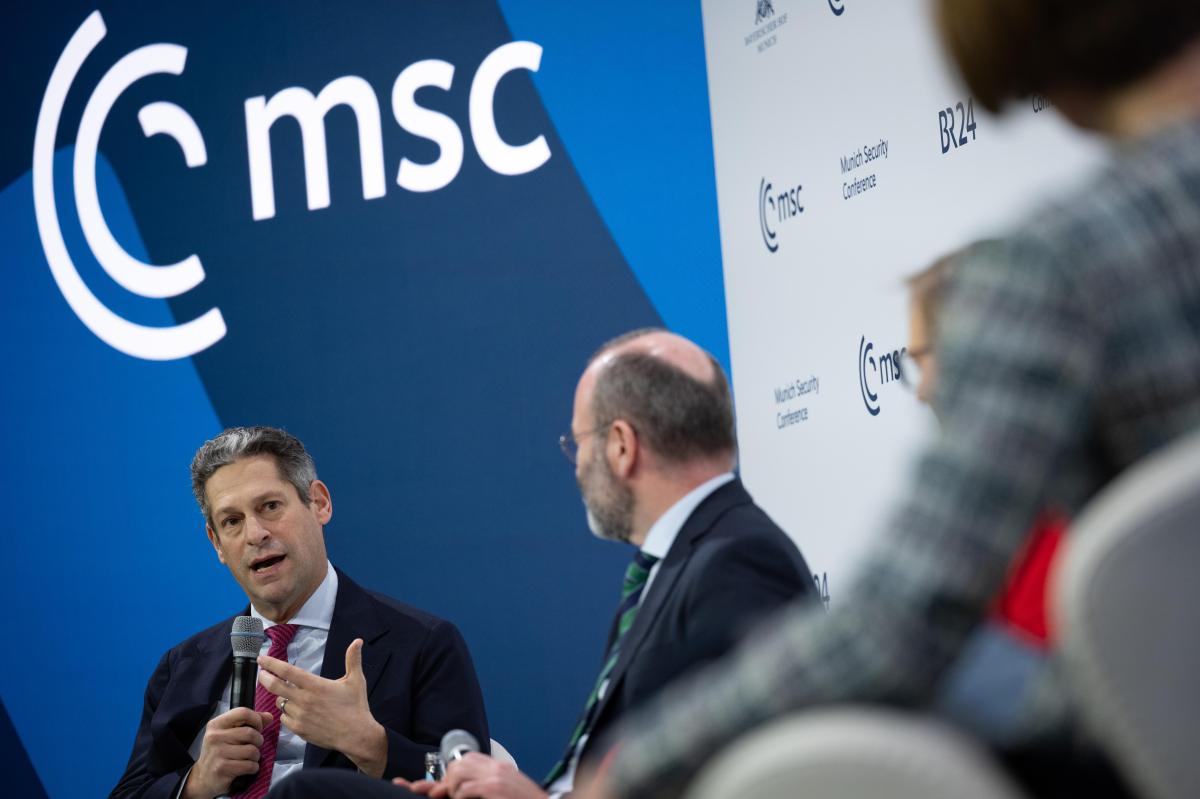Meta’s Strategic Engagement at the Munich Security Conference: A Focus on Open Source AI and Global Collaboration
In a significant move highlighting the intersection of technology and global policy, Joel Kaplan, Meta’s Chief Global Affairs Officer, participated in the prestigious Munich Security Conference over the weekend. This event, renowned for gathering influential leaders and policymakers, provided a platform for discussions on a range of pressing global issues. Kaplan’s involvement underscored Meta’s commitment to engaging with key stakeholders on the future of technology.
During the conference, Kaplan joined an esteemed panel to discuss the theme of reviving European competitiveness. He was accompanied by notable figures such as Luc Frieden, the Prime Minister of Luxembourg; Franziska Brantner, a Parliamentary State Secretary for Economic Affairs and Climate Action in Germany, and Co-Chairwoman of Alliance 90/The Greens; and Manfred Weber, President of the European People’s Party and Chairman of the EPP Parliamentary Group in the European Parliament. Their collective insights provided a comprehensive overview of the challenges and opportunities facing Europe in the context of technological advancement.
The Socio-Economic Impact of Open Source AI
Kaplan’s discourse primarily revolved around the socio-economic benefits that open source artificial intelligence (AI) can offer. Open source AI refers to AI systems whose underlying code is made publicly available, allowing developers worldwide to use, modify, and distribute it. This approach promotes innovation by enabling a collaborative development environment where ideas and advancements can be shared freely.
The implications of open source AI are far-reaching. By democratizing access to cutting-edge AI technologies, open source models can drive significant economic growth. They empower startups and smaller companies to compete on a more level playing field with established tech giants. Furthermore, open source AI can accelerate the development of applications across various sectors, including healthcare, education, and finance, leading to more efficient and effective solutions.
The Crucial US-EU Partnership
Kaplan emphasized the necessity of a robust partnership between the United States and the European Union to nurture the growth of open source AI. Such collaboration is vital for setting global standards and ensuring that the development and deployment of AI technologies align with shared values of privacy, security, and ethical use. By working together, the US and EU can establish a regulatory framework that balances innovation with the protection of individual rights and societal interests.
This partnership is not only about setting standards but also about fostering a competitive edge in the global AI landscape. The combined expertise and resources of the US and EU can position them as leaders in AI innovation, capable of competing with advancements from other regions such as Asia. This leadership is crucial in the ongoing global AI race, where technological dominance can have significant implications for economic and geopolitical power.
Winning the Global AI Race
The notion of a "global AI race" refers to the competition among nations to achieve breakthroughs in AI technology, which can lead to economic advantages and influence over global technological standards. Kaplan highlighted the importance of western nations, particularly the US and EU, in securing a leading role in this race. Success in AI development can drive economic growth, enhance national security, and improve the quality of life for citizens through innovative solutions.
Winning this race involves not only technological advancement but also the ability to attract and retain top talent, foster innovation-friendly environments, and ensure that technological benefits are widely shared across society. The US and EU’s collaborative efforts can create an ecosystem that supports these goals, positioning them as frontrunners in AI development while ensuring that the technology is used responsibly and ethically.
The Broader Implications for Global Policy
Kaplan’s participation in the Munich Security Conference and his insights on open source AI and international collaboration underscore the growing importance of technology in global policy discussions. As AI continues to evolve and integrate into various aspects of daily life, its implications for security, privacy, and economic stability are becoming increasingly significant.
Policymakers worldwide must navigate the challenges of regulating rapidly advancing technologies while fostering innovation and economic growth. Events like the Munich Security Conference provide a platform for these critical discussions, allowing leaders to exchange ideas and establish cooperative frameworks that address both current and future challenges.
Conclusion
Joel Kaplan’s engagement at the Munich Security Conference highlights Meta’s proactive approach to shaping the future of technology through dialogue and collaboration with global leaders. His emphasis on the socio-economic value of open source AI, the importance of US-EU collaboration, and the necessity of winning the global AI race reflects the complex interplay between technology and policy in today’s interconnected world.
As nations continue to grapple with the opportunities and challenges presented by AI, the insights shared at such conferences will play a crucial role in guiding the development of policies and strategies that harness the full potential of technology for the betterment of society. The collaborative efforts of countries like the US and EU will be instrumental in navigating this transformative era, ensuring that technological advancements contribute positively to global progress.
For more insights from the Munich Security Conference, you can visit their official website.
For more Information, Refer to this article.


































